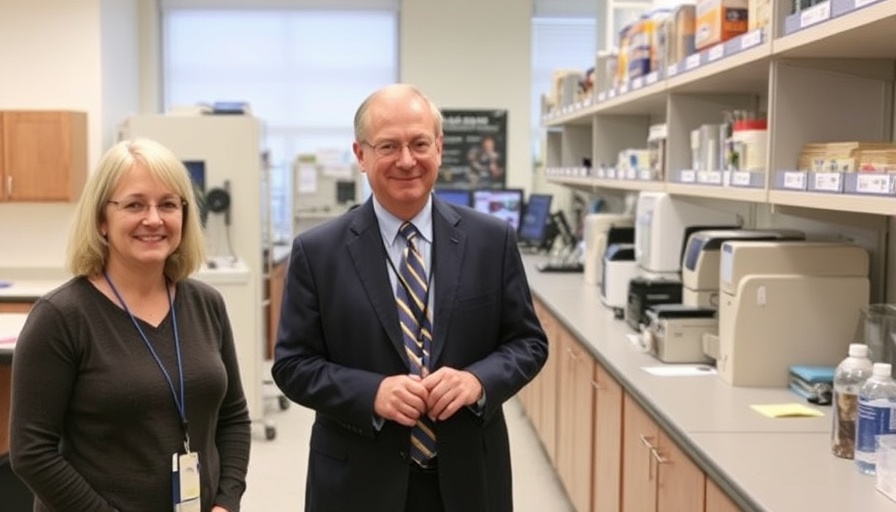
Funding the Fight Against Alzheimer’s in South Carolina
In a groundbreaking initiative, South Carolina's government allocated $10 million to establish the state's first Alzheimer’s Disease Research Center, aimed at addressing the alarming prevalence of dementia in the region. As one of the most significant state investments in Alzheimer’s research, this funding promises to enhance our understanding of cognitive diseases and improve care options for those impacted.
Understanding the Urgency of Alzheimer’s Research
Currently, approximately one in ten South Carolinians over the age of 65 are living with Alzheimer’s, highlighting the critical need for advanced research. The state's mortality rate from this devastating disease ranks eighth in the nation, underscoring an urgent call for innovative solutions and comprehensive care strategies. This funding initiative not only focuses on research but paves the way for better community engagement and educational outreach aimed at recognizing early signs of the disease.
A Collaborative Effort
The Alzheimer’s Disease Research Center is a collaborative venture between the University of South Carolina, Medical University of South Carolina, and Clemson University. Combining their expertise, they are exploring the various factors that contribute to dementia, including genetic predispositions and environmental influences. This multifaceted research approach is vital for developing tailored strategies that can benefit individuals across diverse backgrounds, particularly in hotspot counties identified for high rates of dementia.
The Role of Telehealth and Technology
With the increasing need for effective care solutions, digital tools are becoming integral to supporting patients and caregivers. Innovations such as telehealth services and mobile technologies offer promising avenues for enhancing the landscape of dementia care. In Muskegon, for instance, senior health organizations are beginning to utilize these tools to improve engagement and streamline communication between caregivers and healthcare providers.
Empowering Healthcare Providers
An ongoing challenge in South Carolina is the limited number of neurologists, making it imperative to empower primary care physicians in managing Alzheimer’s care. “Their involvement is crucial, as they often handle patients with dementia in their practice,” stated Steve Carroll, Director of the ADRC. By educating primary care physicians on current treatments and referral options, the initiative aims to alleviate the burden on families navigating the complexities of Alzheimer’s.
Leveraging Community Resources
The budgetary investment facilitates outreach efforts that bring essential resources closer to those who need them most. Communities in Muskegon and beyond are harnessing resources such as caregiver community groups and emotional support programs to bolster their capabilities in managing dementia care. Encouragements for caregivers provide emotional and practical support, which can significantly improve the quality of life for both patients and their families.
The Future of Alzheimer’s Research and Support
This funding and the collaborative efforts behind it signal a hopeful future. As research progresses, so too does the opportunity to secure more federal funding and additional state support, fostering a comprehensive approach that will ultimately save lives. As the number of people diagnosed with Alzheimer’s continues to rise, driven by an aging population, investing in research and community support systems will be critical to adequately meet future challenges.
As South Carolina takes these pivotal steps forward in Alzheimer’s research, it sets an encouraging precedent for similar initiatives across the country. Such community-driven efforts are essential as we strive for breakthroughs in understanding and treating cognitive diseases.
 Add Row
Add Row  Add
Add 




Write A Comment